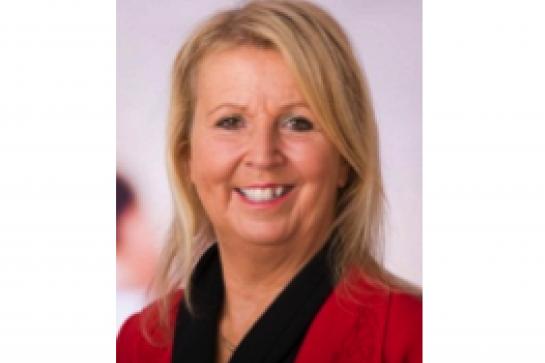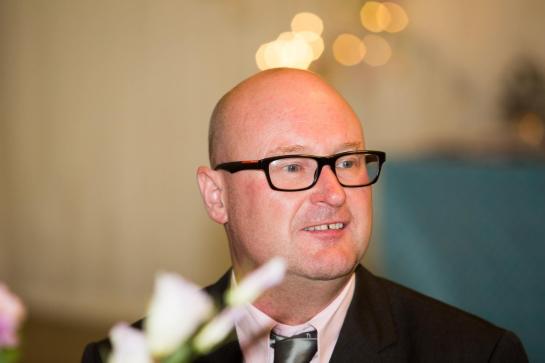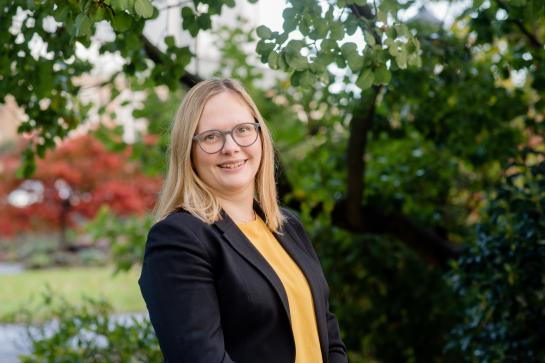
Gender in the Hybrid Age
Our fourth edition of this annual conference brings together academics, EDI professionals, managers, and leaders with an interest in promoting gender equality within higher education, including Athena Swan leads and Aurora Alumni. It is also relevant to staff with responsibility for developing or implementing policies, practices and procedures for supporting staff and students and who want to ensure gender inclusion in their work and to gain a greater understanding of gender as it intersects with other areas of equality including disability and race.
The theme of this year’s conference - Gender in the Hybrid Age - builds upon Advance HE’s previous work highlighting the gendered impacts of the Covid-19 pandemic in HE, to understand how new ways of working and learning continue to impact on our achievement of gender equality.
Hybrid working and the delivery of hybrid learning is now accepted practice across the UK HE sector, resulting in a rethinking of approaches to work and a wide variety of working arrangements. Advance HE’s 2023 Gender in HE conference will consider emerging evidence of differential experiences, explore how universities are addressing gender equality, and identify new challenges and opportunities to address gender inequalities in the Hybrid Age.
Taking an approach that recognises the intersections between gender and other characteristics, the Conference will consider:
- Gender inequalities (established and emerging) in current employment patterns
- How hybrid working is impacting on the health and well-being of women, men and non-binary people in HE
- Creating inclusive spaces for student parents and carers
- Developing inclusive leadership for the world of hybrid working
- Digital safety in hybrid working
- Innovative ways of encouraging and supporting home-based and flexible working
Workshops
- Workshop 1: Where are we going with the gender pay gap?
- Workshop 2: Maternity provision, contract status, and likelihood of returning to work: Evidence from research intensive universities in the UK
- Workshop 3: Gender in HE leadership in the hybrid working environment: challenges and opportunities
- Workshop 4: Digital safety in the HE environment
- Workshop 5: A gender-inclusive approach to student spaces and support
- Workshop 6: From maternity to menopause: women's health in the hybrid workplace
Gender in HE Conference 2023 programme
Download
Unconference session Introduction:
You may be familiar with the concept of an ‘unconference’ session or event if you’ve heard of or taken part in a ‘World café’. The purpose of an unconference is to give delegates an opportunity for peer-to-peer learning, collaboration and creativity. More than just ‘networking’, the unconference is a participant driven meeting where delegates decide what to talk about, with whom and in what ways. At the conference, we’ve allocated one hour this space. All sessions/ideas are welcome.
How does it work?
Please use this form to send in your idea. We will publish these on the website to give prospective delegates a sense of the range of topics that people are suggesting – and give you an opportunity to connect and collaborate with others who have a similar topic. At this stage, these are only suggestions – the agenda for the Bar Camp will only be created at the event itself. We have limited physical space at the conference, so we encourage collaboration/merging of sessions – but the decision is up to you.
Think about convening a session
You do not need to do any preparation to convene a session. If you get an idea the day of the event, call a session. There is no ‘right way’ to lead a session. However, there is a bias towards interaction and discussion.
Choose a format for your session will help you achieve your vision. Here are some examples:
A short presentation to get things started
5-15 minutes of prepared material/comments by the session leader followed by an interactive discussion
My Big (or Little) Question
You have a question you want to know the answer to, and you think others in the group could help you answer it. This format could also just be the seed of a conversation.
Lightning talk
Participants present to the group for a short period of time, typically around five minutes
Charette
Give participants a problem to solve and allow them to self-organize and create working solutions.
You’re encouraged to take photos of different elements of your program so you can share them with others either at sessions you lead or in other sessions.
At the event
If you’re leading a session:
- You ‘hold the space’ by leading a discussion, posing a question etc. Stay visible and be the guide on the side if necessary
- Ask for help to hold the space. For example get someone to help facilitate the discussion. This can be someone you know or another delegate interested in the discussion
- Don’t make assumptions about knowledge and experience. You may know more/less or just as much as the next delegate. If in doubt , ask first
- Don’t try to fill the time. If your session finishes ahead of time, end it
- Be brave! Others are interested in making your session work
- Think about the ideas you want to cover, and how you want to do this , but don’t over prepare
- Experiment, there’s no such thing as failure at an unconference
If you are a delegate for this section:
- Be patient. We are learning and trying something new. The focus is on finding the time and space to talk to one another
- Follow your passion. Go to the session which interests you
- Take responsibility for your own learning. If a topic interests you and it’s not on the agenda put them first
We may not have the physical space to run all the events, but we will try to facilitate 3 sessions on the day
Keynote Panel
Professor Eileen Drew
Workshops
Workshop 1: Where are we going with the gender pay gap?
Workshop 2: Maternity provision, contract status, and likelihood of returning to work: Evidence from research intensive universities in the UK
Inequality in the maternity provision available to university staff based on type of contract (fixed-term or open-ended) could be contributing to the loss of women from academia. This session will consider how variation in maternity provision and the frequent use of policies that limit support to fixed-term workers may be contributing to gender inequality in UK universities. The workshop will provide a space for discussion of the evidence and will ask participants to consider 4 key recommendations for improving provision based on best-practice examples across the sector.
Workshop 3: Gender in HE leadership in the hybrid working environment: challenges and opportunities
This interactive session will commence with a presentation on the current trends and research on gender in leadership in hybrid working world, both from the HE sector and beyond, followed by a discussion with delegates about their experiences of this in their respective universities.
The facilitators will then consider the implications for leaders and how they need to respond to the current challenges of hybrid working and bearing in mind the gender lens. We will share current thinking about perspectives on leadership in higher education and what is required to lead in the hybrid environment.
Delegates will then get the opportunity to participate in the leadership skill bridging exercise, which will consider: where are we? What is needed? and practical steps we can take to bridge the gap.
The session will conclude with some practical steps for delegates to take away and implement into their leadership practice.
Workshop 4: Digital safety in the HE environment
The rapid expansion of digital technologies to deliver learning and student services in HEIs and colleges was accelerated during the pandemic and has enabled HEIs to adapt and expand their reach. At the same time, this has brought new challenges in safeguarding students and staff. Alongside this we have seen a growth in online abuse and an uneven impact on different groups, including gendered patterns of online violence and sexual harassment within higher education as well as in society more broadly.
Universities have responded to these challenges through research and the development of new frameworks, guidance and resources, and broader findings and experience were published by UUK.
With a growing body of practice to share, this workshop will:
• Explore the gendered nature of risks and vulnerabilities of the online environment in HE
• provide information on the evolving policy and legislative context relevant to the sector, and
• highlight current practices in HE both staff to ensure digital safety as well as that of students
Higher Education Online Safeguarding Self-Review Tool
Workshop 5: A gender-inclusive approach to student spaces and support
Many institutions gender equality work is more advanced than other areas of equality work and yet there is still more to be done to ensure that student spaces and support are gender inclusive. This workshop will focus on a range of gendered issues - gender reassignment, pregnancy and maternity, sex as well as gender identity, life stages e.g. menopause, gender based violence, and caring responsibilities. It will draw on national level context and lessons from the University of Salford’s work with a focus on its initiatives to provide spaces and support for trans and non binary students. This interactive work shop will explore:
- What we mean by a gender inclusive approach.
- Evidence related to the student characteristics of gender reassignment and sex in higher education.
- Persistent barriers including those experienced by student parents.
- How Salford has involved trans, non binary and intersex students in bring about change.
Workshop 6: From maternity to menopause: women's health in the hybrid workplace
There are a raft of issues particular to women’s health that until recently have been taboo subjects. As this topics open up in society, employers need to understand their obligations and find ways to support employees at every stage of their health journeys.
This session will look at the law, best practice and share ideas to improve workplace practices.
Speakers
Margaret Ayers
Download programme
Gender in HE Conference 2023 programme
Download
Related content
Teachers and embracing gender equity
Dr Despina Moschou
Advance HE delivers She Leads+ programme at the University of Bahrain
Advance HE
10 ways to #EmbraceEquity this International Women’s Day and beyond
Jenny Garrett












